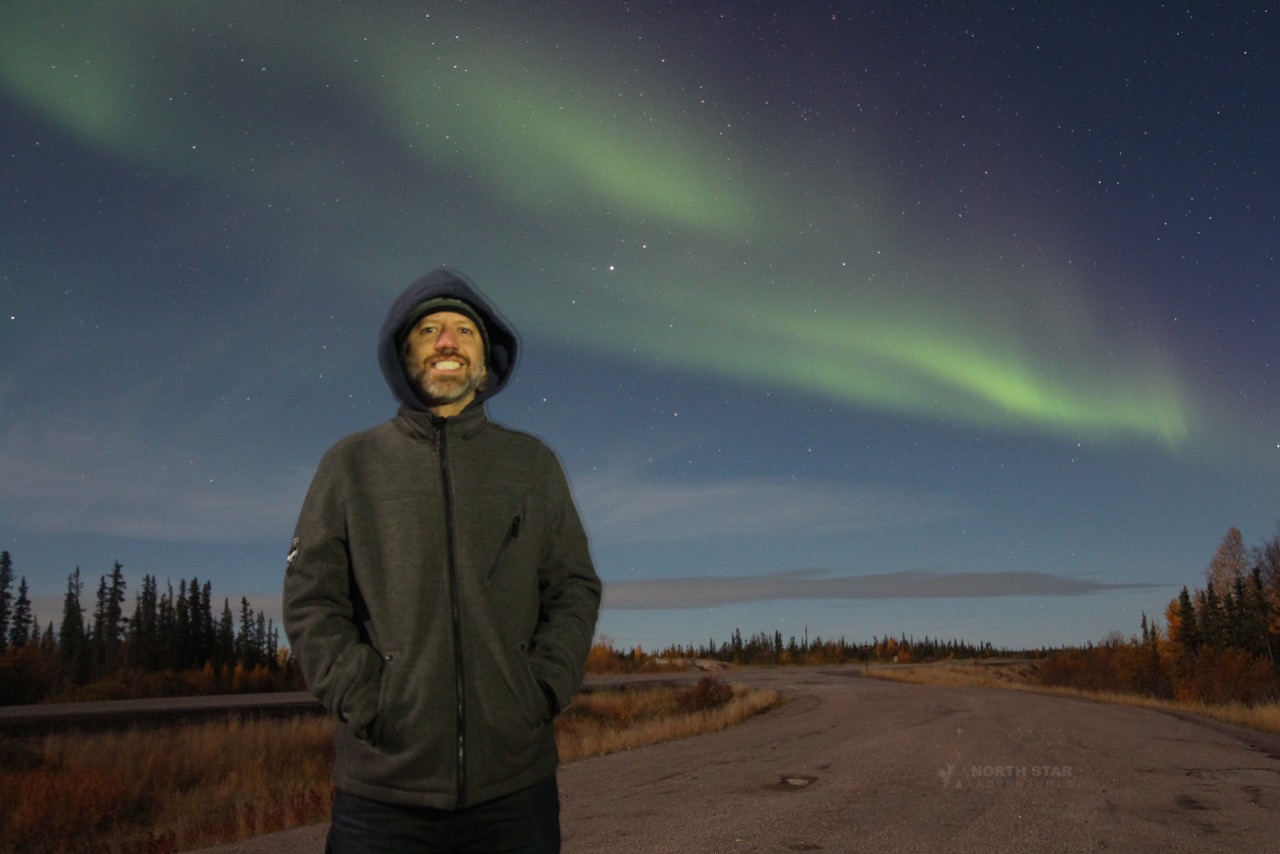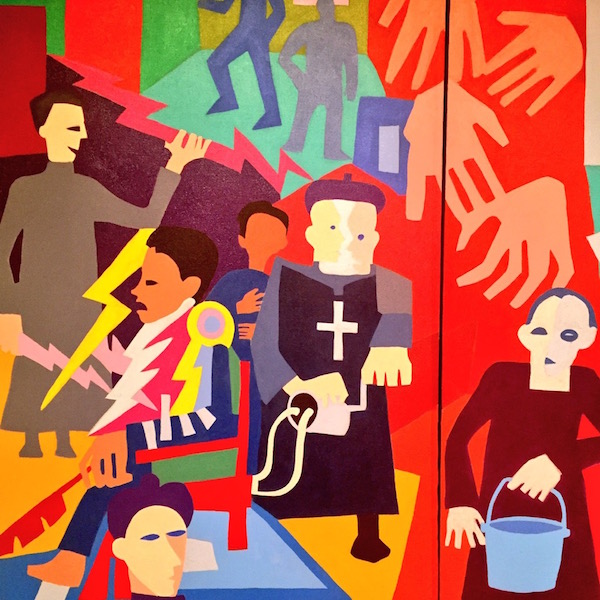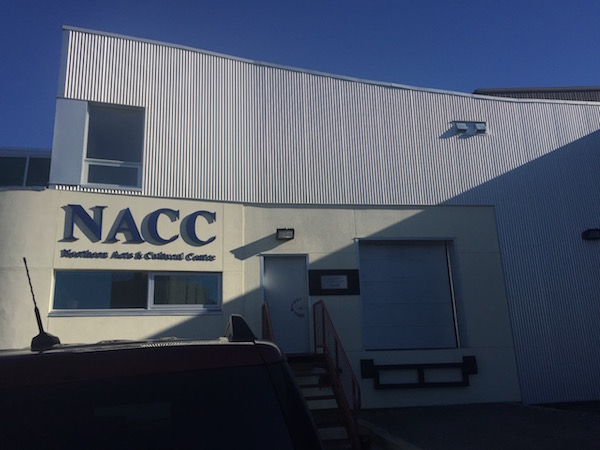I have always wondered about the North.
We, of course, learned about the Northwest Territories in school and since, I’ve always wondered what was up there.
In University, I was fortunate enough to cycle (yes, bicycle) across Canada from Vancouver to Halifax. We missed some parts that I’ve vowed to visit in the future and now, thankfully, one of those is crossed off the list.
This past Friday to Tuesday, I travelled to Yellowknife, NWT, and met many wonderful people who each asked me: “Why are you here?”
I came up North for a few reasons. I wanted to see what the North was like. I wanted to see what the art scene was like. I wanted to meet Indigenous peoples and find out what they thought about Canada. I wanted to be more Canadian.
The past year, I’ve slowly become more and more intensely aware of the people that were here on this land, have always been on this land before others showed up and kind of messed it up. I heard and read about “cultural genocide” and couldn’t believe that residential schools were a real thing in Canada. You see, they weren’t a part of my Canadian History lessons. Could Canada have been so intentionally evil and cruel? I was shocked to read that the church was a part of this story. They wanted to“save the Indians,” convert the “savages.” One of the lessons I learned growing up was to spread the Gospel to all ends of the earth. I’m sure there was good intention, but at what cost?
So, I flew to Yellowknife with an open heart and mind.
Facebook came through and I was immediately connected with several incredible people who made me feel at home. On the flight from Edmonton, I struck up conversation with the people beside me. They, of course, knew Carmen Braden (a composer who was picking me up at the airport), they asked if I knew Leela Gilday (whom I was meeting up with later in the week) which caused the row in front of us to mention that they were neighbours with Carmen and one woman had heard about me through her daughter, my new Facebook friend Kyla. Small world.
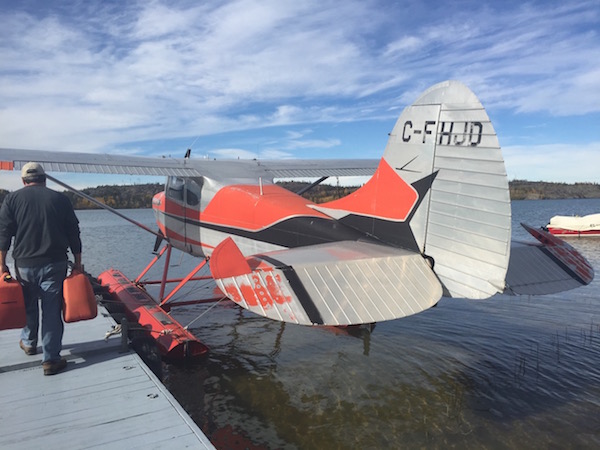
Joel about to board a 1954 Cessna 170 B
Carmen Braden is a Yellowknifer, composer and gifted young musician who has had her music played by ensembles across Canada and is about to release her first album. Over lunch she talked about the NWT, arts councils, composing for ensembles like the Gryphon Trio and why she loved living in Yellowknife. Above all, Carmen is a fantastic human.
I stayed with a wonderful family, a couple from Nova Scotia and Australia, who had met backpacking and of course ended up living in Yellowknife. We visited the local brew pub, where I met many new people. Jean, fixes planes part-time and thought that Hal would be a good guy to reach out to. So of course I did, calling him the next morning. Hal (never did learn his last name) had a small 2-seater plane and the following morning he was more than willing to take me up for a ride.
Hal has been in Yellowknife for 40 years (not from Yellowknife, a common theme) and had tried to live elsewhere, but the North always called him back. We went flying in a 1954 Cessna 170 B. Never done that before. The flight was smoother than I anticipated, and we flew for almost 2 hours all around Yellowknife. NWT has a lot of lakes, a lot of rock, a lot of trees, hardly any billboards, and really not that many people. Yellowknife, the largest city in NWT has a population of 20,000 (the average attendees at one hockey game in Toronto). Hal rocked. I shook his hand at the end, knowing most likely that I’d never meet him again and just said, “Thank you.”
With time still left in the day, I drove to Behchoko, which is about an hours drive from Yellowknife. It is one of the largest Dene (aboriginal group) communities in Canada (population of around 2000). It is a self-governed, dry community. Driving through, I felt like I was prying into their lives but was so glad to have seen it. There’s a school, children, lots of trucks and no restaurants or Starbucks. This is one of the larger communities of at least 30 that are in the NWT.
Sunday morning I met with Debbie DeLancey who is the Deputy Minister of Health and Social Services with the Government of the Northwest Territories. Debbie was awesome (another common Yellowknife theme), and most likely because she had seen the Carmen I directed at the COC this past spring. She made me feel like a superstar. An avid opera fan, she has been up North for 40 years and of course, knew everyone I had met thus far and everyone I was going to meet. We talked about why she was advocating for the North, what the challenges were for the government and indigenous communities and how we can get Against the Grain Theatre to come to Yellowknife. I’m all for that. Before long she had connected me two more people and promises that we’d meet again sometime in the future.
The afternoon was spent at The Prince of Wales Northern Heritage Centre, a lot more Canadian History that I didn’t know or remember and a heartbreaking exhibition by Robert Burke about his experience at a Residential School.
I was picked up by Kyla Kakfwi-Scott (my new FB friend) and her husband Amos Scott (a born and raised Tlicho northerner). They took me for a driving tour of Yellowknife and answered every question I had about their community, life in Yellowknife and being indigenous in Canada. A couple that was my age, I found their belief system and heritage beautiful. Amos has worked for CBC in the past and is a filmmaker. Here is the first episode in a series he made which illustrates life in Behchoko and the Dene people. I was very thankful for my time with Kyla and Amos.
Dene A Journey Season 1, Episode 1- A Modern Tlicho Life from Dene A Journey on Vimeo.
The trip kept going with the Annual General Meeting for Music NWT, an advocacy group for Northern musicians. A 13 years old entity, it was fascinating to hear their history, where they are now and who they aspire to be. Their structure, Strat planning and governance was very similar to Against the Grain and it brought an awareness of our AtG team in Toronto and how much we’ve accomplished in so little time. I was so happy to attend this small meeting of 15 people and so proud of our team back in Toronto.
Post meeting was a pre-booked Northern Lights tour. From 9pm–3am, I was out in a group of 40 led by our tour guide, Deneze (who was awesome). Deneze, also Dene, spoke passionately about his people, had a wicked sense of humour and is someone I knew I’d be friends with if we lived in the same city. Out of the 40-ish people on the tour, I was the only Canadian. I asked Joe, another guide how many Canadians came on the Northern Lights tours, which have become extremely popular in the last few years. He said about 1%, as the largest market is Japanese.
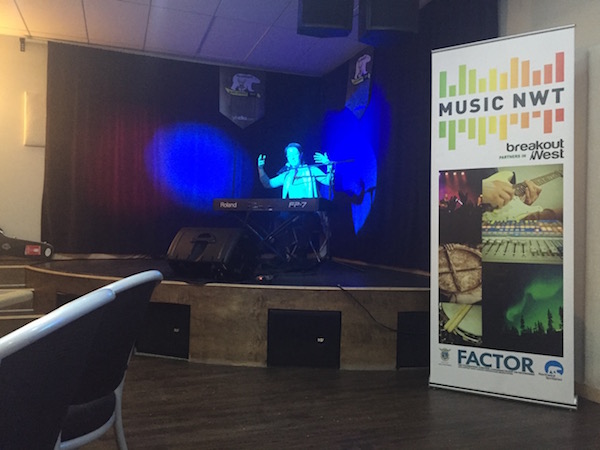
Carmen Braden at the AGM for Music NWT
Following morning, Pat Braden was next on my artist tour. Pat is a bass guitarist and one of the few musicians in the world to play the Chapman Stick (look it up). He spent his youth honing his craft at local bars in Yellowknife, which had live music 6 nights a week. What I took from my time with Pat, was an artist’s heart is an artist’s heart. He can’t envision himself doing anything else and is committed to craft and skill. He’s been in Yellowknife for 40 years (theme here) and has lived in the same Shack (his words) for 30 years where he raised his two daughters with his wife.
Leela Gilday is Dene and born and raised in Yellowknife. She is a talented singer/songwriter who has won a Juno award for Aboriginal Album of the Year. She’s one of the leading aboriginal singers in Canada and was classically trained having spent one year in Toronto singing in the Toronto Children’s Chorus and has a Bachelor’s degree from the University of Alberta. I spoke to Leela about opera, being indigenous and why she moved back home to Yellowknife (another common theme). Family, advocating for youth in rural communities and strong ties to the North were big reasons. We talked about Canada’s 150th celebration and some of the concerts she will and won’t necessarily be playing. Celebrating Canada can come with mixed emotions. It was a great chat and I take from it a better understanding of life as a current artist living in Yellowknife. The rest of my day was spent driving to another community, Detah and reading more about the Truth and Reconciliation report that was filed just last year.
That evening…dinner at a hotel…served by Skye who recognized me from having ushered at the Four Season Centre and asked about Carmen. CRAAAAAZY small world.
The last piece of my journey was spent with Marie Coderre at the Northern Arts and Cultural Centre. Marie, originally from Quebec, has been at NACC since 2012. A strong, passionate and kind woman in her early 30’s, we bonded immediately through our connection with Roman Borys and the Gryphon Trio. The Gryphons have come up to Yellowknife three times touring to various rural communities. For them to continue to travel up here and work with these communities speaks volumes about the nature of their hearts.
Marie gave me a tour of NACC, a 300 seat theatre which has programming 10 months of the year. They bring artists from around Canada and also present local shows. Marie and I connected over grants, budgets, programming and the draw of the North. I left with a strong understanding of the art scene which she is trying to present and change. Yellowknife is the largest city of the NWT, but the NACC represents a Centre for all of the NWT and she has a strong desire to tour to the many communities in the NWT. I can see her moving up the artistic admin ladder in this country very quickly.
Before I knew it, my time in Yellowknife was over. I return to Toronto feeling like this short intense trip will affect my work over the coming few years. It has impacted my identity in a new way. I feel like we are always wanting to know who we are, as individuals and as a collective.
I now feel like my identity as a Canadian is missing something. As a group of people, we aren’t what I thought we were. We were emerging as a very proud Nation. Proud of our strengths (arts, sport, welcoming spirit). We’ve invited refugees from Syria, embraced the many cultures to create an incredible multi-cultural scene, we’ve opened our homes and said “Welcome.” We’re doing a much better job now, having learned from our mistakes, but we can’t excuse, ignore or forget the past. We have a lot to unpack which I am just experiencing. We were the ones that arrived on this land. We were the visitors. We were the ones that came with a new plan. I find it very difficult to celebrate that, to celebrate our 150 years of being a country (the True North strong and free).
I strongly encourage anyone who is interested in the North (or Canada) to go. Go with an open mind and an open heart. I’m interested to see where this journey leads me and us as a country.
